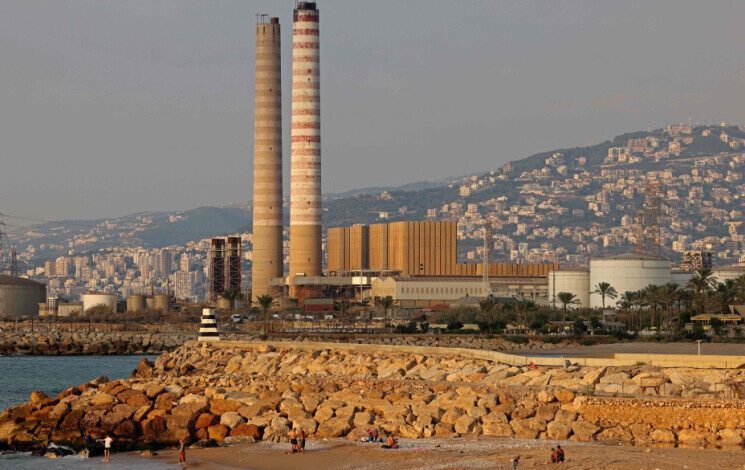يجهد رئيس الحكومة نجيب ميقاتي للظهور بمظهر البطل في ملف الكهرباء. فيرسل المذكرات والطلبات الرسمية، ويعمّمها على الإعلام قبل وصولها إلى المعنيين في مؤسّسة كهرباء لبنان أو في وزارة الطاقة والمياه، قبل أن يظهر أن مضمونها يطلب من مديري المؤسّسات الرسمية الردّ، مهدداً بالمحاسبة وباتخاذ الإجراءات المناسبة.
هذه العراضات بدأت في نهاية آب الماضي، واستمرّت لغاية أمس بعنوان: هل هناك عدالة في توزيع الكهرباء بين المناطق؟في نهاية آب الماضي، أرسل الأمين العام لمجلس الوزراء محمود مكيّة، رسالة إلى مؤسّسة كهرباء لبنان تتذرّع بوجود «شكاوى يومية واردة من المواطنين بشأن التفاوت في ساعات التغذية». وباسم ميقاتي، طالب مكية المؤسّسة بـ«الإفادة عن عدد ساعات التغذية، وكشف التفاوت في التوزيع» وإبلاغه بنسخة عن «جداول تزويد المرافق العامة الحيوية الأساسية بالطاقة، ومدى توفير العدد الكافي من ساعات التغذية لها».
لكن المؤسسة، لم تردّ على طلب مكية لاعتبار أنها «لم تتبلّغ بشكل رسمي بالطلب» وفقاً لوزير الطاقة والمياه وليد فياض. رغم ذلك، «الرسالة عُرضت في الإعلام، وأرسلت عبر مجموعات واتسآب خاصة، ولكن لم يعتبر المدير العام لمؤسسة كهرباء لبنان كمال حايك أنّ هذه هي الآلية الرسمية لتبليغه»، يضيف فياض. إثر ذلك، تدخّل ميقاتي موجّهاً كتاباً إلى المؤسسة موقّعاً منه لتذكير فياض بطلب مكيّة بشأن «الإفادة بوصول الكتاب الأول لمؤسسة كهرباء لبنان من عدمه». وفي حال وصول الكتاب، وعدم الإجابة، لفت ميقاتي إلى «ضرورة اتخاذ الإجراءات المناسبة بحق المعنيين في المؤسسة».
من جهته، رأى فياض أنّه «غير معنيّ بالرسالة الأولى، فهي موقّعة من قبل الأمين العام لمجلس الوزراء، بينما تقتضي أصول المخاطبة بأن توجّه الرسالة إلى الوزير من قبل رئيس الحكومة، أو من وزير آخر». ولفت فياض إلى أنه «تبلّغ الرسالة الأولى عبر الإعلام» مشيراً إلى أن «وزير الطاقة ليس ساعي بريد بين الحكومة ومؤسّسة الكهرباء». من جهة ثانية، يقول فياض إنه يحضّر «للردّ على الرسالة الثانية لأنها موجّهة بشكل رسمي من رئيس الحكومة إلى وزير الطاقة والمياه».
فياض تجاهل الرسالة الواردة من الأمين العام لمجلس الوزراء لأنها تخالف أصول التخاطب
وبحسب مصادر «الأخبار» في مؤسسة الكهرباء، تبيّن أنّ مشكلة التوزيع تعود إلى مشاكل لوجستية وبشرية لن تُحلّ قريباً. وهي تتعلّق بشكل رئيسي بـ«خروج محطة التحكم المركزية في مبنى مؤسسة الكهرباء الرئيسي، بسبب انفجار المرفأ، عن العمل، ما جعل من غير الممكن معرفة كيفية توزيع الطاقة المنتجة في المعامل الحرارية أو المائية بعد وضعها على الشبكة».
واليوم، تتم عملية توزيع الكهرباء من أحد المباني الفرعية للمؤسّسة، وتُستخدم «آلات بدائية تسمح فقط بمعرفة تردّد الكهرباء لعدم السماح بحصول حمل زائد، لكن من دون معرفة ساعات التغذية في المناطق». وهنا أكّد فياض أنّ قرض البنك الدولي بقيمة 250 مليون دولار المخصّص لقطاع الطاقة والمياه، سيلحظ إعادة بناء وتجهيز غرفة التحكم المركزي.
ولم تنفِ المصادر في مؤسّسة الكهرباء بقاء عدد من المدن والأحياء بلا تغذية كهربائية لأيام إضافية بعد عودة المعامل إلى العمل. وأعادت السبب إلى مزاج الموظف أو القبضاي المسيطر على محطة التحويل.
إذاً، «التوزيع فالت تماماً، والضبط شبه مستحيل»، تقول المصادر في مؤسسة الكهرباء. ولا تنفي حصول «عمليات بيع لخطوط الكهرباء في المحطات التي استمرّ التيار بالوصول إليها خلال فترة التقنين القاسي، إذ لا رقابة على الموظفين فيها بسبب غياب غرفة التحكّم الرئيسي».
سابقاً، كان توزيع الطاقة مراقباً من قبل المؤسّسة والتفتيش، وكان من الممكن تقديم تقارير ممكننة حول ساعات التغذية في كلّ منطقة. أمّا الآن، فبإمكان الموظف المناوب في محطة التحويل الاستنساب في إيصال الكهرباء لمن يشاء من الأحياء.
المصدر: فؤاد بزي – الأخبار
Mikati vs. Fayyad: Who Controls Lebanon’s Electricity?
Prime Minister Najib Mikati is working hard to position himself as the champion of Lebanon’s electricity crisis. He has been sending official memos and requests, making sure the media sees them before they even reach those in charge at Electricité du Liban (EDL) or the Ministry of Energy and Water. These memos demand that officials at these institutions respond, threatening accountability and the implementation of appropriate measures.
This public show of involvement began in late August and continued through yesterday, under the theme: Is there fairness in electricity distribution between regions? At the end of August, Mahmoud Makkieh, the Secretary-General of the Council of Ministers, sent a letter to EDL, claiming there were “daily complaints from citizens about discrepancies in power supply hours.” On behalf of Mikati, Makkieh asked EDL to “report the number of supply hours, reveal discrepancies in distribution,” and provide a copy of the “schedules for supplying vital public facilities with electricity and whether they receive adequate supply hours.”
However, EDL did not respond to Makkieh's request, stating it “had not officially received the request,” according to Minister of Energy and Water, Walid Fayyad. Nevertheless, “the letter was displayed in the media and shared in private WhatsApp groups, but EDL Director General Kamal Hayek did not consider this an official notification,” Fayyad added. Following this, Mikati intervened by sending an official letter to EDL, signed by him, reminding Fayyad of Makkieh's request regarding the first letter's receipt. Mikati pointed out that if the letter had been received and no response was provided, “appropriate action should be taken against the relevant officials at the institution.”
For his part, Fayyad argued that he was “not concerned with the first letter since it was signed by the Secretary-General of the Council of Ministers.” According to Fayyad, protocol requires that letters be addressed to the minister by the prime minister or another minister. He noted that he only “became aware of the first letter through the media,” adding that “the Minister of Energy is not a courier between the government and EDL.” On the other hand, Fayyad indicated that he was preparing “to respond to the second letter as it was formally sent from the prime minister to the Minister of Energy and Water.”
Fayyad ignored the letter from the Secretary-General because it breached official communication protocols.
According to Al-Akhbar sources at EDL, the issue with electricity distribution stems from logistical and human problems that won't be resolved anytime soon. The main issue relates to the shutdown of the central control room at the EDL headquarters after the Beirut port explosion. This has made it impossible to track how energy generated by thermal or hydroelectric plants is distributed once it enters the grid.
Currently, electricity distribution is being handled from one of EDL's subsidiary buildings, where “basic equipment is used to only measure the electricity frequency to prevent overloads, but it does not provide information on supply hours in various regions.” Fayyad confirmed that the World Bank loan of $250 million allocated for the energy and water sector would be used to rebuild and equip the central control room.
EDL sources did not deny that some cities and neighborhoods remained without power for additional days even after the power plants resumed operation. They attributed this to the whims of employees or the local strongmen controlling the substations. “Distribution is completely unregulated, and controlling it is nearly impossible,” said sources within EDL. They did not deny “the sale of electricity lines at substations that continued to receive power during the severe rationing period, as there is no oversight of employees due to the absence of the central control room.”
Previously, electricity distribution was monitored by EDL and inspectors, and automated reports on supply hours in each area could be produced. But now, the station employees can arbitrarily decide which neighborhoods receive power.
translated by economyscopes team
 سكوبات عالمية إقتصادية – EconomyScopes إجعل موقعنا خيارك ومصدرك الأنسب للأخبار الإقتصادية المحلية والعربية والعالمية على أنواعها بالإضافة الى نشر مجموعة لا بأس بها من فرص العمل في لبنان والشرق الأوسط والعالم
سكوبات عالمية إقتصادية – EconomyScopes إجعل موقعنا خيارك ومصدرك الأنسب للأخبار الإقتصادية المحلية والعربية والعالمية على أنواعها بالإضافة الى نشر مجموعة لا بأس بها من فرص العمل في لبنان والشرق الأوسط والعالم




